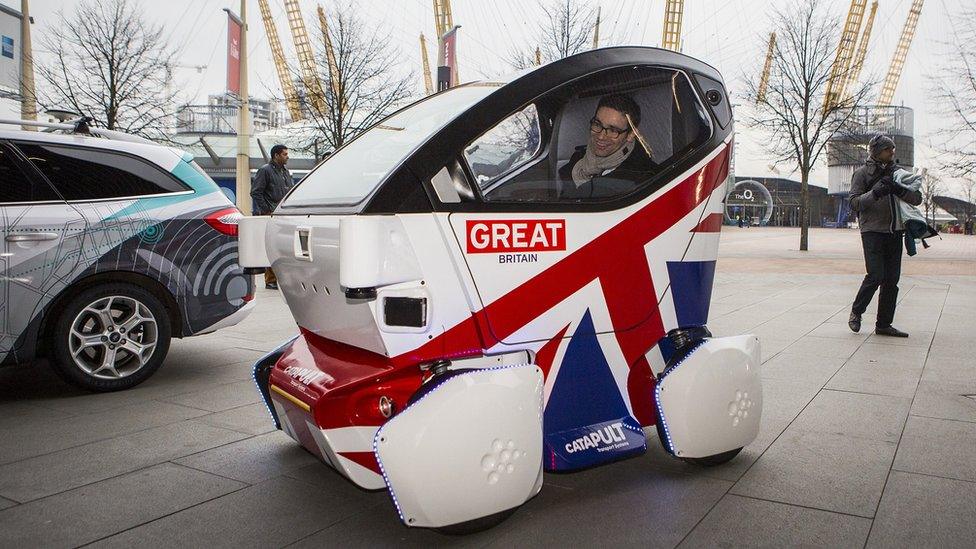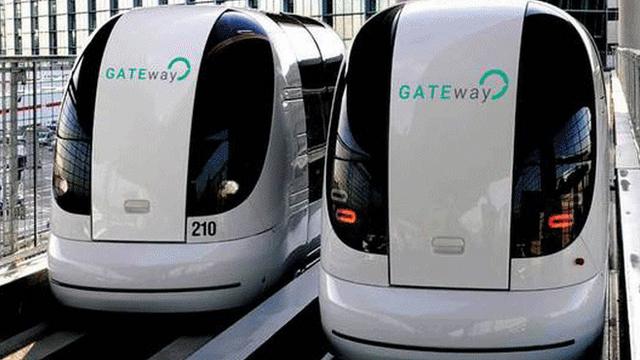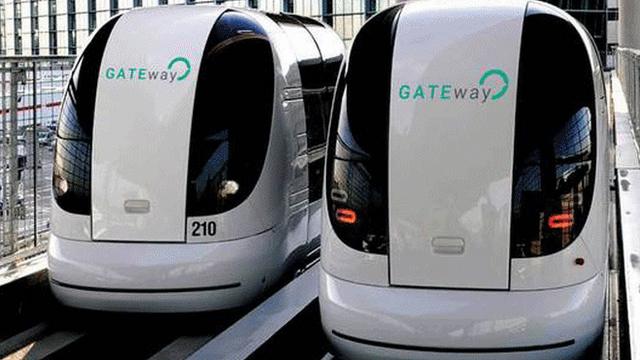UK driverless car projects get government green light
- Published

Driverless cars have already been tested in British cities
More than 40 miles of roads in Coventry will be equipped with technologies to aid autonomous vehicles, the government has announced.
It is one of eight projects aiming to develop driverless-car technologies that will receive a share of £20m, from the government's £100m Intelligent Mobility Fund.
Another will focus on driverless shuttles for the visually impaired.
Autonomous vehicles are already being tested, including in Milton Keynes.
Speaking at another test site, in Nuneaton, Business Secretary Sajid Javid said: "Our cars of the future will be equipped with the technologies that will make getting from A to B safer, faster, and cleaner."
"They will alert drivers of accidents ahead and be able to receive information from their surroundings about hazards, increasing the safety of drivers, passengers and pedestrians."

It was recently announced a fleet of driverless pods, similar to these shuttles used at Heathrow Airport, would be tested on the streets of London

The eight projects are:
UK Connected Intelligent Transport Environment will explore the benefits of "talking car" technologies, on 40 miles of Coventry roads
Insight will develop driverless shuttles with advanced sensors and control systems, with a focus on providing transport for disabled and visually impaired people
Tools for autonomous logistics operations and management will develop modelling tools in a collaboration between transport modellers and the computer games industry
Flourish will develop tools to improve the understanding of users' needs with regard to autonomous vehicles, in Bristol
Move-UK will accelerate the creation and market readiness of autonomous driving systems
Innovative Testing of Autonomous Control Techniques will try to reduce the cost of testing driverless systems
Pathway to Autonomous Commercial Vehicles will explore technologies to monitor vehicle data to predict safety risks
i-Motors - Intelligent Mobility for Future Cities Transport Systems will develop hardware that analyses sensory data in real-time

Prof Paul Newman, from the University of Oxford co-founded driverless car research company Oxbotica, which will receive some of the new funding, told the BBC: "It is part of the strategy that the UK is unfolding to support the future of transport.
"We are really excited about it."
The funding would support the testing and development of software for self-driving vehicles, Prof Newman said.
"It's all about vehicles knowing where they are and what is around them," he added.
The Transport Secretary, Patrick McLoughlin, called the announcement a "landmark moment".
- Published29 January 2016
